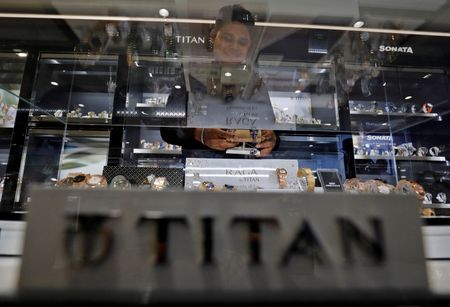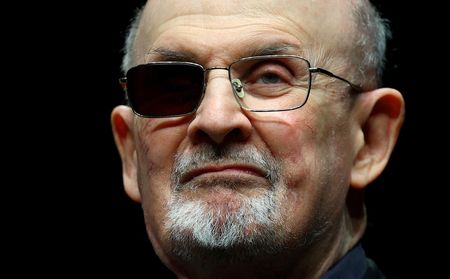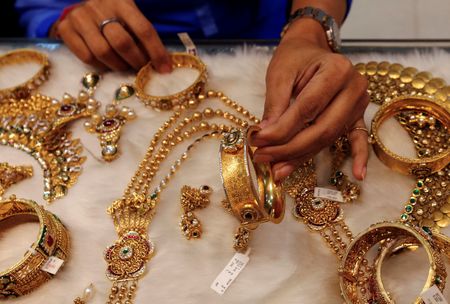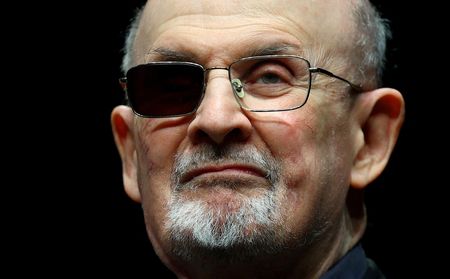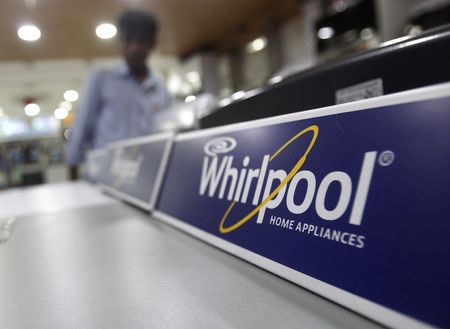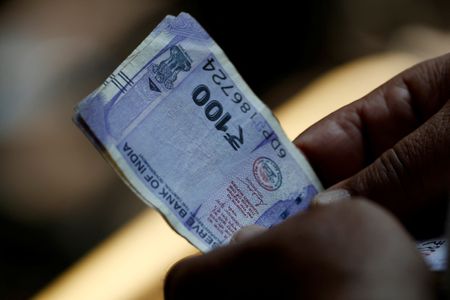By Tom Westbrook and Harry Robertson
SINGAPORE/LONDON (Reuters) – U.S. stock futures and the dollar fell on Tuesday, while Hong Kong shares slipped from two-month highs, as the U.S. and China went tit-for-tat on tariffs and raised the spectre of a broader, damaging trade conflict.
“(The) trade war story remains alive and well and this has a lot further to play out,” said Shane Oliver, chief economist at AMP in Sydney, as prices skidded around on news headlines.
S&P 500 futures, which had bounced in relief that Mexico and Canada cut last-minute deals to delay a U.S. tariff hit, swung to a 0.2% loss, while the dollar index erased earlier gains to trade 0.1% lower at 108.86.
European stocks slipped 0.1% in morning trading after falling 0.87% on Monday. Germany’s DAX index was flat and Britain’s FTSE 100 0.3% lower.
Hong Kong’s Hang Seng scaled 2025 highs on hopes that China would also negotiate its way out of tariffs with U.S. President Donald Trump, but later pared its gains slightly to trade about 2.8% higher, buoyed by hopes that Beijing will ramp up stimulus spending to counter U.S. moves.
An additional 10% U.S. tariff on Chinese exports took effect at 0501 GMT, and minutes later Beijing announced it was investigating Google and imposing tariffs on imports of U.S. oil, coal, gas, cars and farm equipment from Feb. 10.
“I’d say there’s disappointment that the U.S. tariffs will be implemented following the last-minute reprieve of both Mexico and Canada,” said Ben Bennett, Asia-Pacific investment strategist at Legal & General Investment Management in Hong Kong.
“At first look, the Chinese action doesn’t appear overly aggressive, and investors will remain hopeful that both sides will reach an agreement before long and remove the barriers.”
The dollar surged against the offshore yuan on Monday but was last down 0.16% on Tuesday. The more liquid Australian dollar, often seen as a proxy for the yuan, was last down 0.3% to $0.6209.
Mainland Chinese markets remained shut for the Lunar New Year break, with investors focusing on where China fixes the currency trading band on Wednesday morning for clues as to whether it will seek to weaken the yuan to limit the impact of tariffs.
Trump’s press secretary said he will speak with Chinese President Xi Jinping in the next few days, but unlike the North Americans, it is less clear where they will find common ground.
“It’s a totally different story because it (China) is an economic rival as well as political,” said Naka Matsuzawa, chief macro strategist at Nomura in Tokyo.
“Unless China makes huge concession economically, I really don’t think Trump will stop this tariff.”
UNCERTAINTY UNLEASHED
Trump’s shifting trade policies have made for a wild start to a week that is also dotted with major company earnings.
The Canadian dollar swung in its biggest one-day range since the onset of the pandemic on Monday, while the S&P 500 fell 1.9% before finishing the session 0.76% lower.
Investor discomfort had safe-haven gold trading just below Monday’s record highs at $2,817 an ounce. Bonds fell slightly after ticking higher on Monday, with benchmark 10-year Treasury yields up 3 bps to 4.579%.
The euro was steady at $1.0341 while the dollar rose 0.3% to 155.28 yen.
“For the Federal Reserve, the weekend’s developments will likely reinforce their inclination to sit on the sidelines and to remain below the radar as much as possible,” noted J.P. Morgan’s chief U.S. economist, Michael Feroli.
UBS Group trounced forecasts with fourth-quarter profits and announced a buyback. BNP Paribas also beat earnings forecasts but lowered this year’s profit target.
Google reports after U.S. markets close on Tuesday and scrutiny will be on its massive AI spending after the apparently much cheaper Chinese model DeepSeek shocked markets last week.
Brent crude oil prices, which initially rose on Monday, were down around 1% after touching their lowest in a month at $74.81 a barrel.
(Reporting by Tom Westbrook and Rae Wee in Singapore, and Harry Robertson in London; additional reporting by Ankur Banerjee in Singapore; Stella Qiu in Sydney and Brigid Riley in Tokyo; Editing by Jacqueline Wong, Shri Navaratnam and Kim Coghill)




